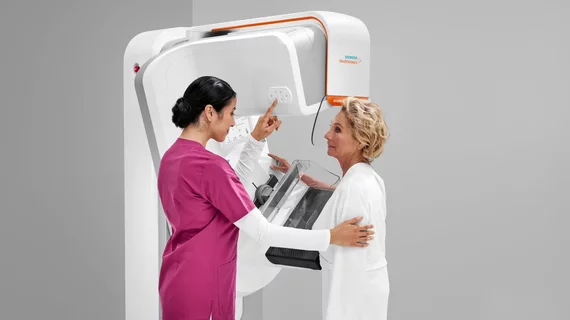3D scanner capable of 5-second mammograms unveiled in Europe
Siemens Healthineers has introduced a mammogram system touted for its ability to complete a 3D breast cancer scan in approximately five seconds.
The Mammomat B.brilliant is distinguished by a proprietary technology that combines a new, wide-angle X-ray tube and detector with AI-powered image reconstruction software. Notably, this system represents the first of its kind, according to a statement from Siemens Healthineers.
"Our systems have to provide meaningful answers in the shortest possible time. This is especially important in mammography, when the stressful uncertainty for patients must be reduced to a minimum. Only Mammomat B.brilliant offers this unique combination of speed, resolution and wide angle," Verena Schön, head of X-Ray products at Siemens Healthineers, said in the statement.
The company showcased the mammogram machine at the annual congress of the European Society of Breast Imaging, held in Valencia, Spain.
According to Siemens Healthineers, the key feature of the Mammomat B.brilliant is its wide-angle tomosynthesis capability, in which the X-ray tube moves around the breast at a 50° angle, offering one of the broadest angles available in the market, facilitating the accurate identification of abnormalities and microcalcifications in breast tissue.
Siemens Healthineers has also integrated flying focal spot technology, previously used in CT scanning, into the Mammomat B.brilliant. With this, it hopes to counteract blurring that may occur as the X-ray tube rapidly rotates to capture three-dimensional breast images.
While it has already been put into use in a Belgian hospital, it is worth noting that the system has not yet received clearance for use in the United States.
This news follows the FDA clearance of the company’s mobile 1.5T MRI system, covered by Health Imaging last week.

